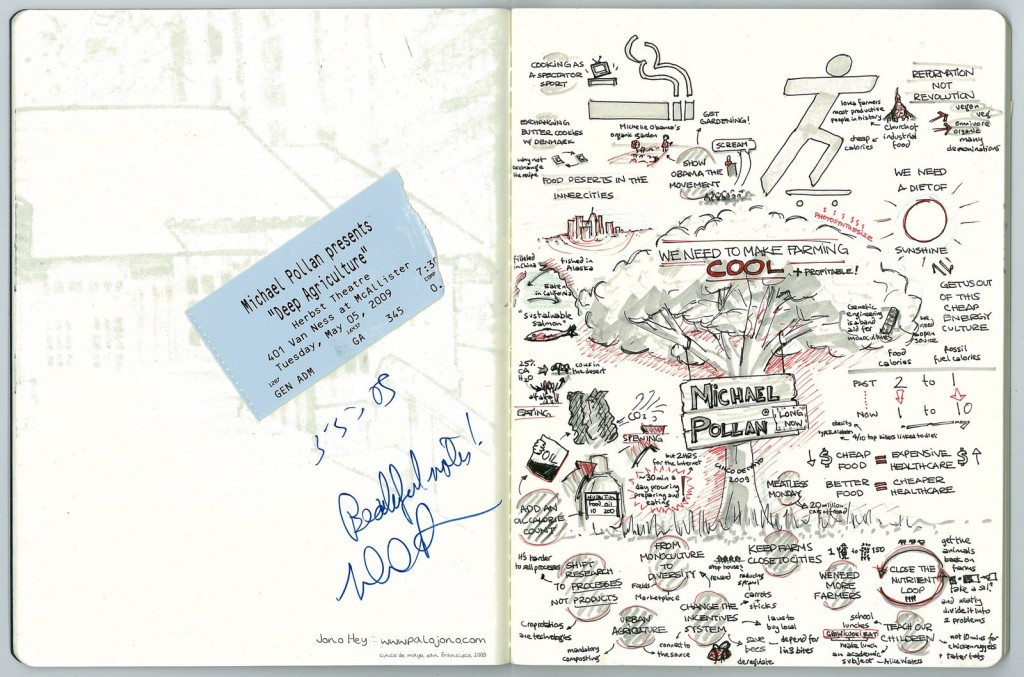Does your organization ever have problems that seem too difficult, large, or expensive to solve?
If you work within the food system, your answer is most likely YES. Why?
Because the food system is broken. It’s complex, difficult to navigate, mired in bureaucracy, and rife with deep-seeded problems.
Lately, it seems like everyone is talking about how to fix it thanks to cultural icons like Michelle Obama, Michael Pollan, Jamie Oliver and Stephen Colbert . The World Wide Web Foundation is regreening Africa through sustainable agriculture. Funds such as NewSeed Advisors are creating opportunities to invest in sustainable agriculture. Major foundations such as Gates, W.K. Kellog, and Pew are investing billions of dollars in research and programs seeking to address issues such as: access to healthy food, diet-related health concerns, costs, environmental impact, food security, food safety, global warming, workers rights, and the list goes on. But, these challenges are enormous, overwhelming, and in need of cross-disciplinary problem solving.
It’s going to require serious collaboration if we are ever to come up with scalable solutions. Which is why organizations such as Innocentive, a web-based open innovation platform, offer interesting opportunities for organizations to engage experts from various disciplines as they address these problems, also referred to as crowdsourcing.
Innocentive was created to help organizations (seekers) connect with experts (solvers) across a variety of fields to come up with innovative solutions to a particular problem. The platform is designed to allow people to quickly and cost effectively gain insight from a larger range of expertise than is available within their organization.
Innocentive is one of the companies that got me started thinking differently about the power and utility of the web. I am excited to have the opportunity to hear their CEO Dwayne Spradlin speak at the upcoming JustMeans Social Media, Technology, and Change Conference. Be sure to register here if you are interested in hearing him speak about how crowdsourcing sustainable product and design challenges can lead to increased financial performance.
Here are selection of ways the platform is being utilized to address challenges in the food system:
 Models for Sourcing Regional Food Databases
Models for Sourcing Regional Food Databases
The Seeker wishes understand potential models for sourcing and integrating reliable and validated regional food databases. Various food analysis databases exist, but the seeker requires models of how these may be networked or integrated to provide consolidated information that is useful to diabetes patients around the world who wish to balance their diet and insulin intake.
This is an Ideation Challenge with a guaranteed award pool of $10,000. The best proposal will receive $5,000 and 1-3 additional awards will be made from the remaining $5,000.
 Human Nutrition (Controlled Feeding) Study
Human Nutrition (Controlled Feeding) Study
The Seeker is looking for a creative and dynamic partner for conducting research in the area of human nutrition. This is an electronic Request-for-Partners (eRFP) Challenge; the Solver will need to submit a written proposal to be evaluated by the Seeker with a goal of establishing a collaborative partnership.
 Access and Affordability of Fertilizers for Small-holder Sub-Saharan African Farmers
Access and Affordability of Fertilizers for Small-holder Sub-Saharan African Farmers
There is a great need for access to affordable compound fertilizers (NPK) to improve the livelihoods of small-holder farmers in the developing world. Cheaper nitrogen sources and recovery/recycling of Phosphorous and Potassium are of interest. You can try our new Team Project functionality on this Challenge.




